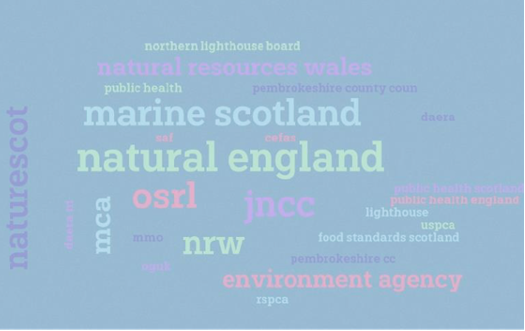
Six months into the EUROWA-2 project – what’s new?
The first half of the year has seen Sea Alarm and EUROWA-2 project partners make a start on a wide range of activities which will result in big strides forward in European oiled wildlife preparedness.
EUROWA-2 is funded by European Union Civil Protection and is based on two key areas:
- strengthening mutual assistance for wildlife emergencies and
- improving the capabilities of a network of internationally qualified EUROWA experts.
Technical activities in the first part of this year have focused on developing educational tools for authorities, including an interactive tabletop exercise package, a study of existing wildlife preparedness arrangements in Europe, guidance documents on wildlife response planning, and a guideline for organising wildlife response exercises. These tools are designed to bring European authorities forward in their efforts to develop integrated plans for wildlife emergencies, where all concerned authorities (including those responsible for at-sea and shoreline response), collaborate on the oiled wildlife issue during peace time.
This field of ‘integrated management’ for oiled wildlife emergencies will be further explored at two workshops for authorities in 2022, where the new tools will be rolled out. The project team is also busy making preparations for hands-on training events for EUROWA network members to take place starting in autumn 2021. Courses are planned for EUROWA Advanced and Specialist Responders, and Facility Managers. New course packages on scientific risk and impact assessment and sea turtle emergency response are under construction, also to be rolled out in 2022. In total, 13 training events and 2 workshops will be organised during the two years of the project.
Sea Alarm is providing overall steer of the project as coordinator, assisted by our project partners, Submon, WWF Finland and Royal NIOZ, as well a number of technical experts within the EUROWA network. Members got together for an online network meeting in April, to review progress on the wider EUROWA Work programme, to set priorities and project plans, and lastly to conduct training on the EUROWA SOP, describing how the network works together when they are requested to assist abroad in an oil spill incident.
Keep an eye out for further project news at www.eurowa.eu, where you can also subscribe to the EUROWA newsletter, or follow EUROWA on Twitter.


